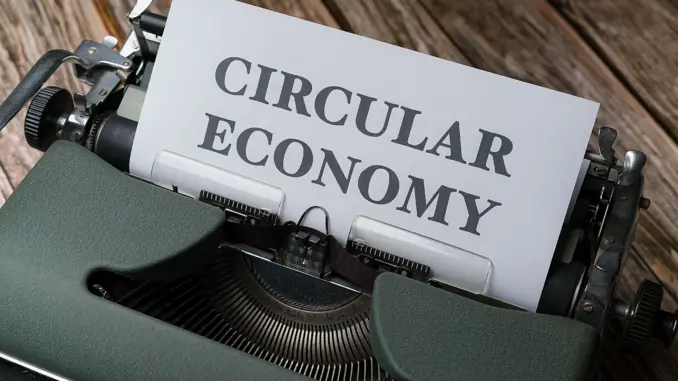
The newly launched Center for Circular Economy in Coffee proposes a pre-competitive approach to industry challenges.
BY VASILEIA FANARIOTI
SENIOR ONLINE CORRESPONDENT
Cover photo by Markus Winkler via Pexels
During this year’s World Coffee Conference (WCC 2023) organized by the International Coffee Organization in Bengaluru, India, the topics of sustainability and circular economy were at the forefront. The conference is held every four years, bringing together producers, industry leaders, and decision-makers to discuss the challenges facing the coffee industry. And this year’s conference was especially noteworthy as it marked the launch of the Center for Circular Economy in Coffee.
By bringing together a global network of partners, including the Giuseppe e Pericle Lavazza Foundation, Politecnico di Torino, University of Gastronomic Sciences, the ICO, International Trade Centre (ITC) and United Nations Industrial Development Organization (UNIDO), the new center aims to reframe the coffee supply chain. Let’s have a look at what this might mean for the industry.
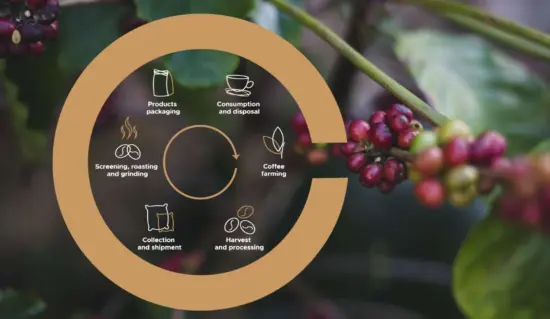
It’s Time for Pre-Competitive Collaboration
When I heard about the launch of the Center for Circular Economy in Coffee, I was immediately intrigued. What seems to set this new center apart is its pre-competitive approach to tackling industry issues.
Pre-competitive, in this case, means that the center will act as a neutral ground for all players in the coffee supply chain to come together and work toward circular solutions. By bringing together local growers’ communities, coffee roasters, associations, institutions, research centers and academia, the center aims to promote circularity through collaboration.
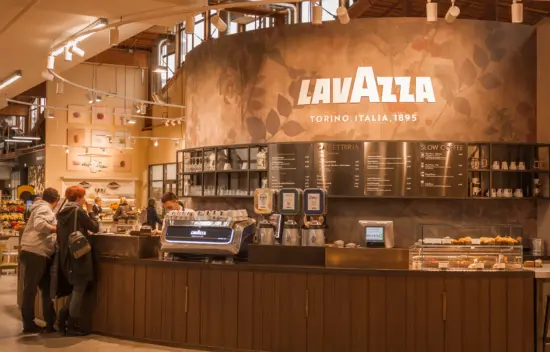
But what exactly is a circular economy, and why is it so important for the coffee industry? In simple terms, a circular economy promotes sustainability by focusing on reducing waste and reusing resources in a closed-loop system. And as we know, the coffee industry is no stranger to challenges when it comes to sustainability. There are many areas that could benefit from a circular approach: climate change, affecting crop yields, issues of fair trade, and economic sustainability for farmers, to name a few.
The launch of the Center for Circular Economy in Coffee also highlights the growing importance of regenerative agriculture, which focuses on restoring and enhancing the natural ecosystem rather than depleting it. This approach can have a positive impact not only on the environment but also on social and economic sustainability.
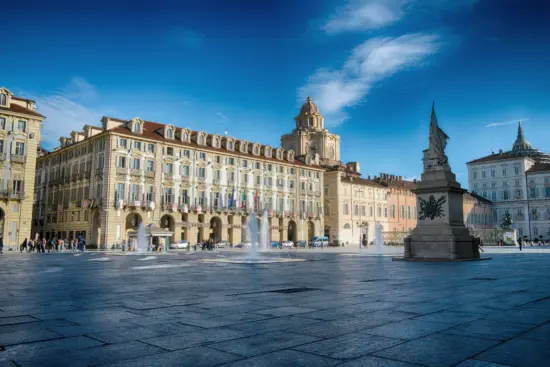
From Discussion to Action: The Center’s Role as a Platform
With its global reach and diverse network of partners, the Center for Circular Economy in Coffee has the potential to make a significant impact on the industry. One exciting aspect of this initiative is its focus on innovation and good practices. Through collaboration and knowledge sharing, players in the industry have the opportunity to learn from each other and implement new, circular solutions.
Vanúsia Nogueira, executive director of the ICO, says that innovation is essential to improve quality, reduce risks, and transform the coffee supply chain. “The Center for Circular Economy in Coffee is a perfect example of how the ICO can mobilize local and global partners to support the world coffee community: fostering circular economy solutions will help secure the world’s coffee supply while meeting the demand for sustainable coffee, transforming waste into new job and income opportunities, and tackling the environmental issues facing the sector,” she says.
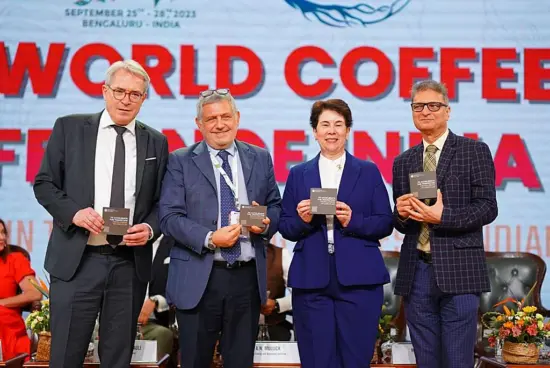
Currently, the center is actively seeking potential members that share their vision for a circular coffee industry. This includes:
- Local growers’ communities: Providing them with access to a global knowledge network and the opportunity to implement pilot projects in the circular economy.
- Coffee roasters: Collaborating with industry experts in a scientific network, proposing new initiatives, and drawing inspiration from shared projects with the center.
- Associations, institutions, and strategic partners: Welcoming their support for new initiatives that accelerate the circular economy in the coffee industry.
- Research centers and academia: Raising awareness and proposing innovative solutions.

Working Toward Sustainability and Innovation
Silvia Barbero is an associate professor at Politecnico di Torino and a member of the Scientific Committee of the Center for Circular Economy in Coffee. She points out that the center demonstrates the college’s strong commitment to collaboration with entities in the global panorama. “The university’s contribution to this initiative will extend beyond research and knowledge co-creation, focusing on the implementation of projects through the establishment of an inclusive network capable of actively engaging all the stakeholders in the coffee value chain. To achieve this goal, it is essential to reach a holistic understanding of this system, known for its high complexity in processes and, above all, in the relationships among the numerous actors involved,“ she says.
The launch of the Center for Circular Economy marks an important step toward sustainability and innovation in the coffee industry. I look forward to seeing the impact this initiative will have on the coffee industry.
ABOUT THE AUTHOR
Vasileia Fanarioti (she/her) is a senior online correspondent for Barista Magazine and a freelance copywriter and editor with a primary focus on the coffee niche. She has also been a volunteer copywriter for the I’M NOT A BARISTA NPO, providing content to help educate people about baristas and their work. You can follow her adventures at thewanderingbean.net.

READ THE LATEST BARISTA MAGAZINE
Out now: It’s the October + November 2023 issue of Barista Magazine! Read for free with our digital edition. And for more than three years’ worth of issues, visit our digital archives here.
Get a hard copy of the magazine through our online store, or start a subscription for one year or two.

